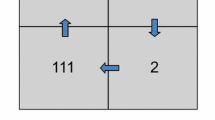Abstract
Two experiments investigated the interfering effects of a manual tracking task on timing performance. Subjects generated a series of 5-s temporal productions under control (timing only) and experimental (timing + pursuit rotor tracking) conditions. Timing was more variable under experimental conditions, a finding consistent with attentional models which argue that timing tasks compete with concurrent distractor tasks for limited processing resources. A pretest-posttest paradigm was employed to evaluate the hypothesis that practice on the tracking task would lessen its attentional demands and thereby attenuate the interference effect. Experiment 1 involved single-task practice (tracking alone). Single-task practice leads to automaticity, the ability to perform a skilled task using fewer processing resources. Pretest-posttest comparisons showed that such practice reduced interference in timing. Experiment 2 involved dual-task practice (timing + tracking). Dual-task practice promotes the development of timesharing, the ability to efficiently switch attention between multiple tasks. In this case, practice failed to reduce the interference effect in timing. The results suggest that effective strategies for timing in dual-task situations must allow one to closely monitor the ongoing flow of temporal events.
Similar content being viewed by others
Author information
Authors and Affiliations
Additional information
Received: 11 November 1996 / Accepted: 6 May 1997
Rights and permissions
About this article
Cite this article
Brown, S. Automaticity versus timesharing in timing and tracking dual-task performance. Psychological Research Psychologische Forschung 61, 71–81 (1998). https://doi.org/10.1007/s004260050014
Issue Date:
DOI: https://doi.org/10.1007/s004260050014




